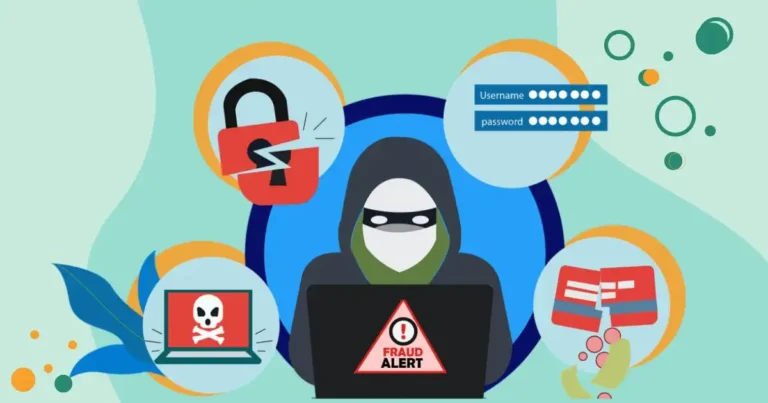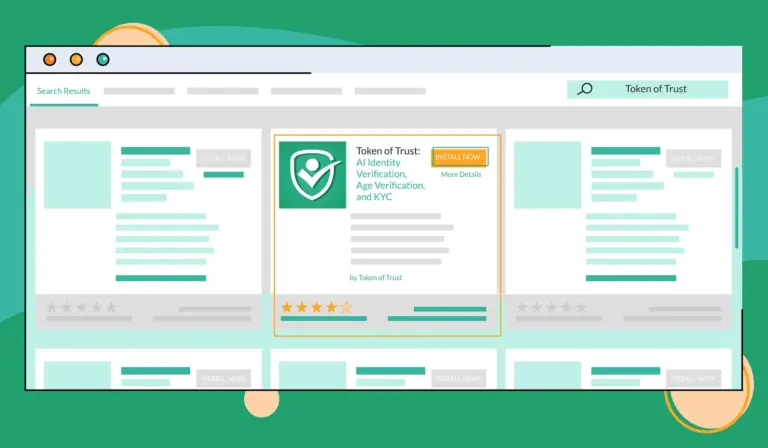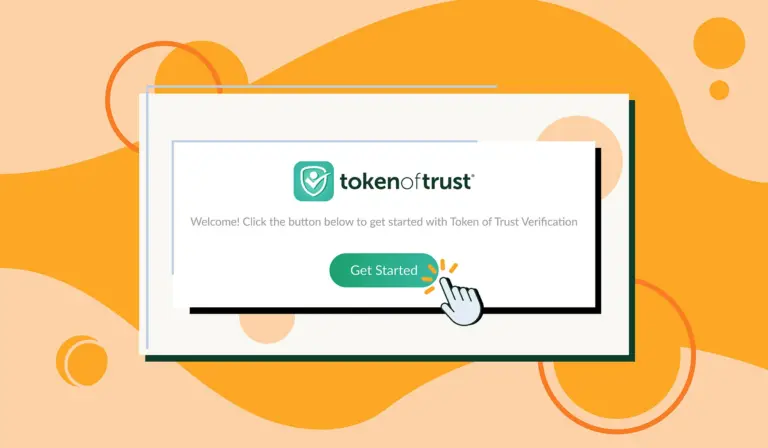The Risks of Unverified Renters: Protecting Your Rental Business
Imagine this: your thriving rental business, the result of hard work and investment, faces hidden threats. From cars and trucks to tools, party equipment, and recreational vehicles, the demand for rentals is at an all-time high. As a rental company owner, you understand the value of Identity Verification. Those seemingly harmless renters could be concealing a costly secret: the potential to steal, damage, or leave you accountable and dealing with insurance claims.
In this article, we’ll explore the challenges that rental businesses like yours encounter, emphasizing the vital importance of Identity Verification. We’ll also present real-life news examples to underscore the message. Additionally, we’ll introduce three channels for conducting due diligence on customers and delve into the touchless rental experience that has emerged in the post-COVID era. Your business’s security and success hinge on this crucial aspect, so let’s get started.
Types of Rental Businesses at Risk
Several types of rental businesses are at risk due to unverified renters. Let’s explore each of these categories, including recreational vehicle rentals, with real news examples to highlight the potential consequences:
Freight Thefts
Cargo theft is a persistent threat to the trucking industry. Criminals employ various tactics, including impersonation, to steal valuable goods. To address this, educating and alerting drivers is crucial, but identity verification can play a significant role in ensuring the legitimacy of drivers and carriers. It can enhance cargo security, reduce theft, and protect valuable cargo from theft.
Car Rentals
Car rental companies face increasing identity theft and fraud challenges. In a case from Orange County, a woman exploited a loyalty rewards program, using fake credit cards and stolen licenses to steal 42 rental cars. Identity verification measures are crucial to prevent such incidents. These checks ensure that renters provide valid identification and meet specific criteria, helping to mitigate the risk of renting to individuals with malicious intent or fraudulent credentials, safeguarding rental fleets, and preserving the reputation of car rental businesses.
Recreational Rental
Peer-to-peer rental agencies like Outdoorsy.com connect RV owners with potential renters, but the verification process can be inadequate. For example, Outdoorsy’s verification only checks for age and a valid driver’s license. In one case, an RV owner discovered that their renter had a criminal history involving property theft and substance violations after the rental was underway. RV owners should be cautious and consider more comprehensive identity verification processes to ensure the safety of their RVs and property.
Expanding our view to encompass a broader spectrum of recreational equipment rentals, including ATVs, snowmobiles, kayaks, boats, and off-road vehicles, the challenges related to unverified renters remain a concern. Owners of these diverse outdoor assets often face similar verification shortcomings, where a mere check of an individual’s age and driver’s license might not reveal their full history or intentions. As seen in various real-life cases, renters may not always be forthcoming about their qualifications or intentions, potentially putting both the equipment and the property at risk. Thus, owners of ATVs, snowmobiles, kayaks, boats, and off-road vehicles should take a lesson from RV owners and explore more robust and comprehensive identity verification measures. This proactive approach not only safeguards their valuable equipment but also contributes to the overall safety and security of the rental experience.
Camera and Lens Rental
In the camera and lens rental sector, unverified renters pose a significant risk, potentially leading to the loss or damage of high-value photography and videography equipment and triggering costly insurance claims. The value of professional-grade cameras, lenses, and videography gear makes them attractive targets for theft or mishandling. Without proper verification, you risk entrusting your gear to individuals who may lack the skills or integrity to handle it responsibly, which could result in skyrocketing insurance rates. Implementing stringent verification processes is crucial to mitigate these risks, providing a secure environment for your clients while safeguarding your business from insurance cost increases.
Sound and Light System Rental
Sound and light system rentals are essential for various events, but the industry’s thriving nature also attracts unverified renters, who can misuse or damage valuable equipment and lead to expensive insurance claims. With sound and light gear often being expensive and delicate, a single incident of misuse can result in significant financial setbacks. Moreover, these incidents may cause insurance rates to surge, as insurance providers react to increased risk. Prioritizing renter verification helps ensure that your equipment is in responsible hands and prevents the potential complications of rising insurance costs, making your rental business more secure and cost-effective in the long run.
Real Estate Property Rental
Real estate property rentals are not immune to challenges related to tenant screening and unverified renters. Costly and inaccurate tenant screening reports have the unfortunate consequence of discouraging prospective tenants, as they bear the burden of non-reimbursable background check fees that often contain errors. The lack of transparency in the screening process exacerbates the issue, leading to substantial application fees and frequent housing rejections. However, the financial toll doesn’t stop there; unverified renters, particularly those involved in illegal activities or fraud rings, can impose even more significant costs on property owners. From property damage to legal complications and reputational harm, renting to such individuals can result in financial burdens that far exceed the initial screening expenses. Enhancing identity verification measures becomes not only a solution to streamline the tenant application process but also a crucial step in safeguarding property owners from the potential financial consequences of renting to bad actors.
3 Channels for Conducting Identity Verification on Customers
To mitigate these risks, rental businesses need to adopt comprehensive renter verification processes across three key channels:
1. Online Reservations with Advanced Identity Verification (QR Code Access):
A newer trend in the industry involves verifying renters before they even arrive at the rental location. By using advanced technology like QR codes or access codes, businesses can minimize the need for staff involvement and ensure renters’ identities are confirmed before they access the rental.
2. Point-of-Sale (POS) Rentals with In-Person Verification:
This traditional method involves collecting and verifying renters’ identification documents upon arrival at the rental facility. It allows staff to assess renters in person, ensuring that the person picking up the rental matches the reservation details.
3. Hybrid of Online and In-Person Verification:
This approach, similar to what U-Haul uses, combines online pre-verification with in-person rental processes. Renters receive a link on their mobile devices from the receptionist, allowing them to handle the verification themselves. This method gained popularity during the COVID-19 pandemic as it reduced the need for direct contact with rental staff.
The Touchless Rental Experience in the Post-COVID Era
The COVID-19 pandemic brought about a significant shift in consumer behavior. Renters now prefer to verify their identity in advance and engage in touchless exchanges with rental companies. This shift is driven by several factors:
Privacy and Security Concerns:
Many consumers are uncomfortable handing over their driver’s license and sensitive data to an order taker to be scanned or copied. They want the assurance that their data is collected digitally for the simplicity of the interaction and then encrypted in a safe and secure location.
Contactless Transactions:
Touchless exchanges eliminate the need for physical interactions, reducing the risk of disease transmission. Customers appreciate the convenience and safety of not having to sign hard copy agreements with pens or hand over their IDs in person.
Efficiency and Convenience:
Digital verification and touchless transactions streamline the rental process, making it faster and more convenient for both customers and rental businesses. Renters appreciate the efficiency of these methods.
Rental businesses that embrace touchless rental experiences not only meet customer expectations but also enhance security and data protection. By adopting secure digital verification processes, businesses can assure their customers that their sensitive information is handled with care and stored securely.
Token of Trust Identity Verification: A Solution for Rental Businesses
To address these challenges and meet the demands of the touchless rental era, rental businesses can turn to solutions like Token of Trust. Token of Trust offers a comprehensive verification platform that covers not just IDs but also qualifications and certifications. This service streamlines the renter verification process, reducing risks and ensuring compliance with regulations while prioritizing customer privacy and data security.
In conclusion, the rental business industry is thriving, but it’s not without its risks. Unverified renters can lead to theft, damage, accountability issues, and insurance complications. By implementing robust verification processes across online reservations, POS rentals, and hybrid approaches while embracing touchless rental experiences, rental businesses can safeguard their assets and reputation. Additionally, services like Token of Trust can provide the necessary tools to simplify and enhance the verification process, ensuring a safer, more secure, and customer-friendly rental experience. Real-life news examples underscore the importance of these measures in protecting rental businesses from potential losses and liabilities in a post-COVID world.






